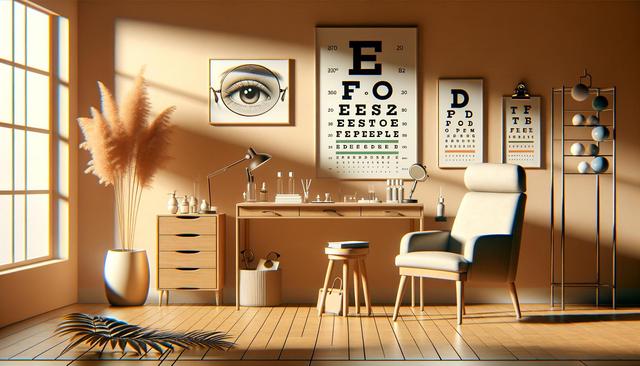Understanding the Importance of Eye Health
Maintaining good vision goes beyond just seeing clearly—it plays a crucial role in your overall quality of life. Eye exams can help detect early signs of serious health issues such as diabetes, high blood pressure, and even certain cancers. Regular visits to an eye care professional can also guide you in managing conditions like dry eyes, digital eye strain, and age-related macular degeneration. Knowing when and why to see an eye doctor is essential, especially if you’re experiencing symptoms like blurred vision, eye pain, or sensitivity to light.
There are two main types of eye doctors: optometrists and ophthalmologists. Optometrists primarily handle vision care and prescribe lenses, while ophthalmologists can perform medical and surgical interventions for eye diseases. Depending on your needs, one might be more suitable than the other. For instance, if you need LASIK consultation or cataract surgery, an ophthalmologist would be the appropriate choice.
How to Identify a Well-Regarded Eye Doctor
When searching for an eye doctor near you, consider factors that indicate professionalism and credibility. A well-regarded eye doctor typically has:
- Strong educational background and board certification
- Positive reviews and patient testimonials
- Modern and well-maintained facilities
- Availability of advanced diagnostic equipment
- Clear and transparent pricing for services
In addition, a good eye doctor will take the time to explain your diagnosis, answer your questions, and involve you in the treatment process. Look for clinics that foster a patient-centered approach by offering flexible appointment scheduling and personalized care plans. These attributes contribute to a more comfortable and effective eye care experience.
Where to Begin Your Search
With many options available, starting your search for local eye care can feel overwhelming. However, there are a few reliable ways to narrow down your choices:
- Ask for personal recommendations from family and friends
- Check online directories and review platforms
- Visit the websites of professional associations for licensed practitioners
- Contact your health insurance provider for a list of in-network specialists
Some platforms allow filtering by specialty, location, availability, and even languages spoken. This can be especially useful if you’re seeking a practice that accommodates specific needs, such as pediatric eye care or vision therapy. Additionally, many clinics offer virtual consultations, providing convenience and accessibility for initial assessments or follow-ups.
Questions to Ask Before Making an Appointment
Before scheduling a visit, it’s wise to gather a few key details to ensure the provider aligns with your expectations. Here are some important questions to consider:
- Is the doctor accepting new patients?
- What types of insurance are accepted?
- What services are included in a comprehensive eye exam?
- Are there additional fees for advanced testing or procedures?
- What is the cancellation or rescheduling policy?
Asking these questions upfront can help you avoid surprises and make informed decisions about your eye care. It’s also helpful to verify whether the clinic offers emergency services or after-hours support, especially if you have a condition that may require immediate attention.
Maintaining a Long-Term Relationship with Your Eye Doctor
Once you’ve found a trusted eye care provider, building a long-term relationship can significantly benefit your vision health. Regular check-ups allow your doctor to monitor changes over time and adjust treatments as needed. This continuity of care is particularly important for individuals with chronic eye conditions or a family history of eye diseases.
Staying proactive with your appointments also helps in early detection of issues that may not present obvious symptoms. Moreover, your eye doctor can provide guidance on lifestyle changes, protective eyewear, and habits that support optimal eye health. For example, they may advise on:
- Proper screen time management
- UV protection for outdoor activities
- Nutrition that supports retinal health
- Safe contact lens hygiene practices
Developing a rapport with your eye doctor ensures that you feel comfortable discussing concerns and following through with recommended care. This mutual trust can enhance your overall experience and lead to better outcomes in the long run.
Conclusion: Choosing the Right Eye Doctor for You
Finding a highly rated eye doctor near you requires a bit of research, but the benefits are well worth the effort. With the right professional by your side, you can enjoy clearer vision, early detection of health issues, and personalized care tailored to your needs. Seek out a provider who prioritizes communication, utilizes up-to-date technology, and is committed to supporting your long-term eye health. Whether you’re due for a routine exam or need specialized care, taking the time to choose the right eye doctor is a step toward maintaining a brighter, healthier future.

Leave a Reply